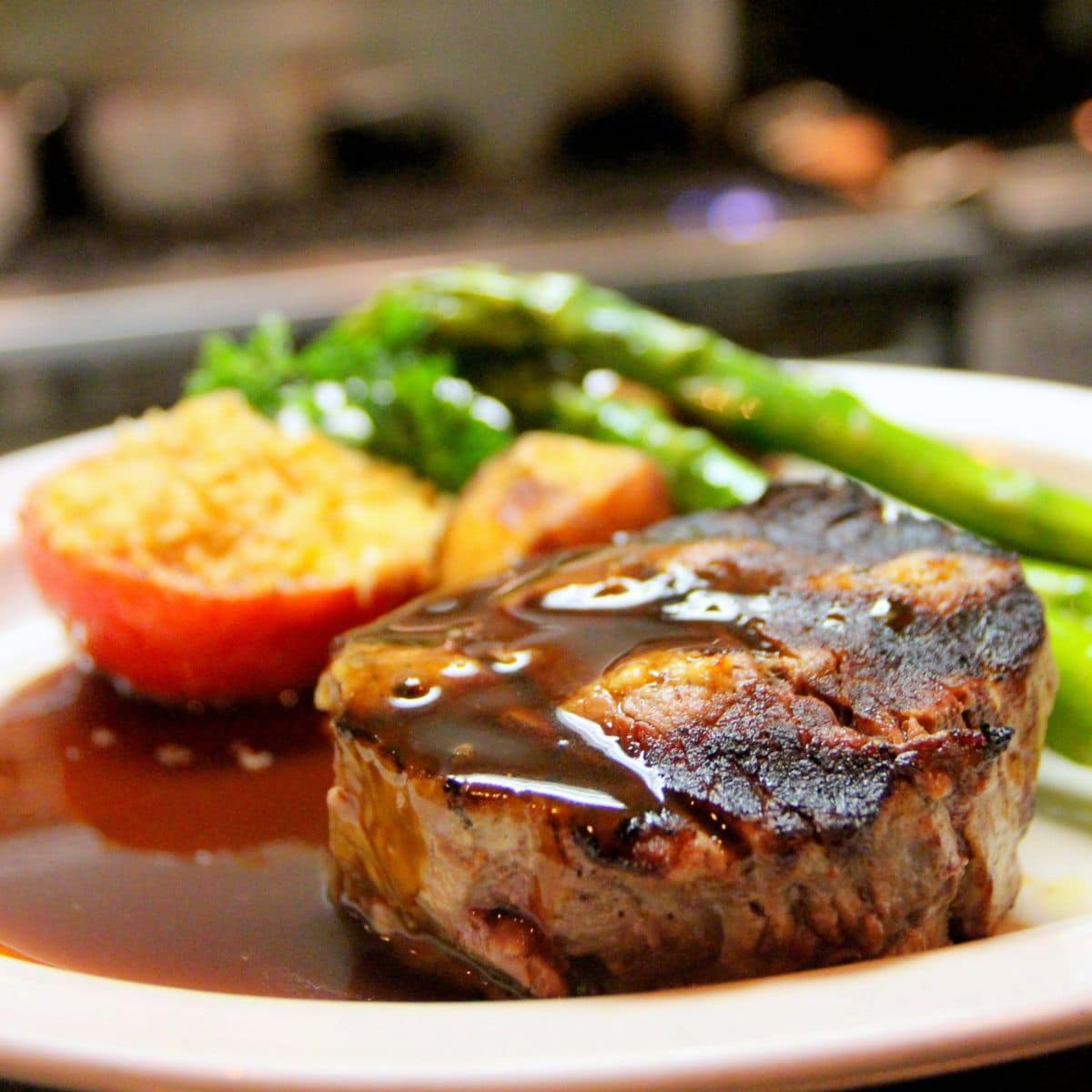

I recently wrote about the carnivore diet: what it is, the claimed health benefits, and what the short- and long-term evidence suggests about its healthfulness. I suggest reading that article for context before continuing here.
To put it mildly, the evidence favoring a carnivore diet is not convincing. Anyone hoping for proof that this is a healthy diet will have to settle for anecdotes and hearsay, speculation about some of our ancestors’ lifestyles, and attempts to dismantle most of what nutrition scientists have been telling us for the past several decades. In the previous article, I also briefly summarized some of the research supporting a plant-inclusive diet, about which volumes could be (and have been) written.
This interpretation is, admittedly, somewhat influenced by my positive experiences with the whole food, plant-based diet. However, I think it would be a big mistake to frame the carnivore diet as especially opposed to plant-based diets. Such positioning ignores the fact that the carnivore diet is far more restrictive and far less researched than plant-based diets; it ignores that the carnivore diet is opposite not only to veganism but also to every more moderate dietary approach on the planet; in short, it ignores that the carnivore diet is an extreme fringe experiment.
Mainstream Views of the Carnivore Diet
- “I would never recommend a carnivore diet for [jump-starting a weight loss program],” writes the chief medical editor of Harvard Health Publishing.[1]
- “Red meat is associated with an increased risk for [cardiovascular disease] and diabetes [. . .] A dietary pattern high in plant-based food is recommended,” summarizes the American College of Cardiology.[2]
- Dr. Walter Willet, professor of epidemiology and nutrition at Harvard, is quoted in a CNBC article: “It’s possible that some people who have been eating a lot of refined starch and sugar may get better in the short run [. . .] But this sounds like a diet that is going to be very unhealthy in the long run.”[3]
- The Cleveland Clinic’s response to the question Can you have too much meat? is straightforward: “Yes—yes you can!” They highlight the high amounts of saturated fats, protein, and sodium in the diet and refute the simplistic villainization of carbs.[4]
- “Although likely to aid weight loss in the short term,” says another nutritionist, “the carnivore diet is extremely restrictive, unbalanced and most likely unhealthy for the longer term [. . .] The diet lacks key micronutrients as well as fibre and protective plant compounds.”[5]
- Even a blog post written for Chomps—a company that sells meat-based snacks!—concludes, “What we do know is that the carnivore diet directly advises people to not eat food we know scientifically is good for you. Studies show the benefits of eating a balanced, natural, and organic diet.”[6]
Practically every major health organization you could think of—from the American Heart Association to the World Health Organization, from the Academy of Nutrition and Dietetics to the American Institute for Cancer Research, and much more—and every moderate person in between, either explicitly warns against the carnivore diet, citing concerns about the diet’s nutritional inadequacies, extreme restrictiveness, and the lack of research, or recommends a balanced diet incompatible with the carnivore diet.
So, Why Has the Carnivore Diet Become Popular?
It’s commonly said, and attributed to Dr. John McDougall, that people love to hear good news about their bad habits. While I think this is generally true and may partly play into the carnivore diet’s trendiness, I’m convinced something more is going on with this phenomenon. After all, maintaining an unhealthy standard American diet is also pleasurable and considerably easier.
The diet’s popularity more likely owes somewhat to a combination of chronic disease epidemics and the desperation for short-term results. Many are driven by promises of short-term weight loss; the long-term consequences of the carnivore diet may be far from their minds. A survey cited in the previous article mentioned above shows not only that people are motivated by weight loss but also that weight loss is possible (whether the weight loss is sustainable for most people and at what cost are different issues).[7]
But I also believe something deeper and more interesting is happening here: more than maybe any other diet, the carnivore diet thrives on the disintegration of public trust in the medical system.
If you spend a couple hours surveying comments and reviews for related articles, books, and blogs, one of the most persistent patterns you will notice is the profound distrust people feel toward the institutions that are supposed to guide us toward healthier outcomes. “Whatever the government recommends,” writes one reviewer of The Carnivore Diet, “do the opposite and you can’t go far wrong!”[8] “The ‘experts’ told us the food pyramid was the best method for a balanced diet,” laments another on Reddit.[9] This sentiment appears to be extremely common not only in spaces dedicated to the carnivore diet. I recently read a Wall Street Journal article about cheese, and the comments were full of similar remarks.[10] It’s also a recurring theme with other fad diets: Dr. Gundry’s lectin-free diet, blood-type diets, etc. But as the most extreme of these examples, the carnivore diet best exemplifies the pattern.

Trust Should Not Be Taken for Granted
On the one hand, I have sympathy for those who distrust the medical establishment. By almost any measure, our collective health is not doing well. Despite our spending exorbitant sums of money, epidemics of chronic disease and nutrition confusion are swallowing the world. In many cases, our ability to treat and prevent diseases has barely improved, if at all, and this stagnation has been going on for decades. To make matters worse, doctors are not sufficiently trained in nutrition, and corporations exert untold influence on the very institutions entrusted with addressing these challenges.
Unsurprisingly, as of 2023, only one in three Americans reported having a great deal or quite a lot of confidence in the medical system.[11] Although that is significantly higher than the public’s confidence in other institutions, like Congress or the news media, it’s still abysmal. Likewise, public trust in scientists has declined.[12]
The knee-jerk reaction we might expect in response to this systemic failure is exactly what we do see—throngs of people assuming we should do the opposite of whatever the experts tell us. If experts tell us vegetables are healthy, vegetables must be toxic; if experts tell us that whole grains are not the same thing as Twinkies, they must be trying to fatten us up; if experts tell us that animal-based diets are associated with increased incidence of cancer, they must be part of a global conspiracy. And if experts “have beef” with the carnivore diet, it must be worth seriously considering.[13]
To what extent does a failing system justify unfounded paranoia? Surely, we can do better than raging against MyPlate and championing a diet for which there is no scientific basis. Why not instead direct our energy toward making constructive demands—why not advocate for the sort of changes capable of gradually restoring trust and empowering individuals to make better decisions for their health?
The final chapter of The Future of Nutrition (2020) addresses this need:[14]
“As useful as it is to deconstruct and denounce the current system, we must also think constructively. The challenges we face are complex, too, and so require more than one simple solution. This is why wholism, as an organizing principle to inform our scientific pursuits, is a good first step toward addressing these challenges: it is not merely a rejection of the current status quo, but also an acceptance of something larger and more essential; it does not only question our flawed reductionist practices but offers an engaging, active alternative. By offering alternatives, we don’t simply tear systems down, but instead improve them. And shouldn’t this be our goal?”
In other words, it is not enough to sprint toward whatever experts and institutions warn us against. We should think more critically about the alternatives we propose, and not throw away the progress that has been achieved. Here are a few constructive goals, again from The Future of Nutrition, to get us started:
- Demand comprehensive nutrition science education for all medical students.
- Reimburse primary care physicians who counsel patients on nutrition.
- Establish a National Institute for Nutrition.
- Ensure food subsidy programs align with nutritional evidence and consumer protection rather than corporate interests.
References
- LeWine HE. What is the carnivore diet? Harvard Health Publishing. May 8, 2024. https://www.health.harvard.edu/nutrition/what-is-the-carnivore-diet
- Jackson EA. Red meat consumption, CVD, and diabetes. American College of Cardiology: Latest In Cardiology. June 14, 2023. https://www.acc.org/Latest-in-Cardiology/Journal-Scans/2023/06/14/14/24/red-meat-consumption-cvds
- Onque R. Fitness influences swear by the ‘carnivore diet’—it’s ‘basically a terrible idea,’ doctor says. CNBC.com. March 30, 2024. https://www.cnbc.com/2024/03/30/fitness-influencers-swear-by-the-carnivore-diet-what-doctors-think.html
- Cleveland Clinic. The carnivore diet: Can you have too much meat? health.clevelandclinic.org. July 1, 2021. https://health.clevelandclinic.org/the-carnivore-diet
- Delaney E. What is the carnivore diet? bbcgoodfood.com. August 16, 2023. https://www.bbcgoodfood.com/howto/guide/what-is-the-carnivore-diet
- Sanchez K. Carnivore diet meal plan for beginners. Chomps.com. May 9, 2024. https://chomps.com/blogs/nutrition-sustainability-news/carnivore-diet
- Lennerz BS, Mey JT, Henn OH, Ludwig DS. Behavioral Characteristics and Self-Reported Health Status among 2029 Adults Consuming a “Carnivore Diet”. Curr Dev Nutr. 2021;5(12):nzab133. Published 2021 Nov 2. doi:10.1093/cdn/nzab133
- “Smithy.” Excellent book. The Carnivore Diet Amazon.com customer reviews. January 1, 2024. https://www.amazon.co.uk/Carnivore-Diet-Shawn-Baker/dp/162860350X
- “Cetha.” Reddit.com comment on “Peer-reviewed studies done on the carnivore diet?” 2023. https://www.reddit.com/r/nutrition/comments/14qoa5t/comment/ju3sb92/
- Petersen A. How much cheese should you eat? You won’t like the answer. The Wall Street Journal. August 12, 2024. https://www.wsj.com/health/wellness/dairy-diet-cheese-health-a5f09dee
- Saad L. Historically low faith in U.S. institutions continues. Gallup News. July 6, 2023. https://news.gallup.com/poll/508169/historically-low-faith-institutions-continues.aspx
- Kennedy B, Tyson A. Americans’ trust in scientists, positive views of science continue to decline. Pew Research Center. November 14, 2023. https://www.pewresearch.org/science/2023/11/14/americans-trust-in-scientists-positive-views-of-science-continue-to-decline/
- Mayer BA. Why health experts have beef with the all-meat carnivore diet. Healthline.com. January 11, 2023. https://www.healthline.com/health-news/why-health-experts-have-beef-with-the-all-meat-carnivore-diet
- Campbell TC. The Future of Nutrition (with Nelson Disla). BenBella Books, Inc., Dallas TX, 2020.
Copyright 2026 Center for Nutrition Studies. All rights reserved.
Deepen Your Knowledge With Our
Plant-Based Nutrition
Certificate
Plant-Based Nutrition Certificate
- 23,000+ students
- 100% online, learn at your own pace
- No prerequisites
- Continuing education credits









